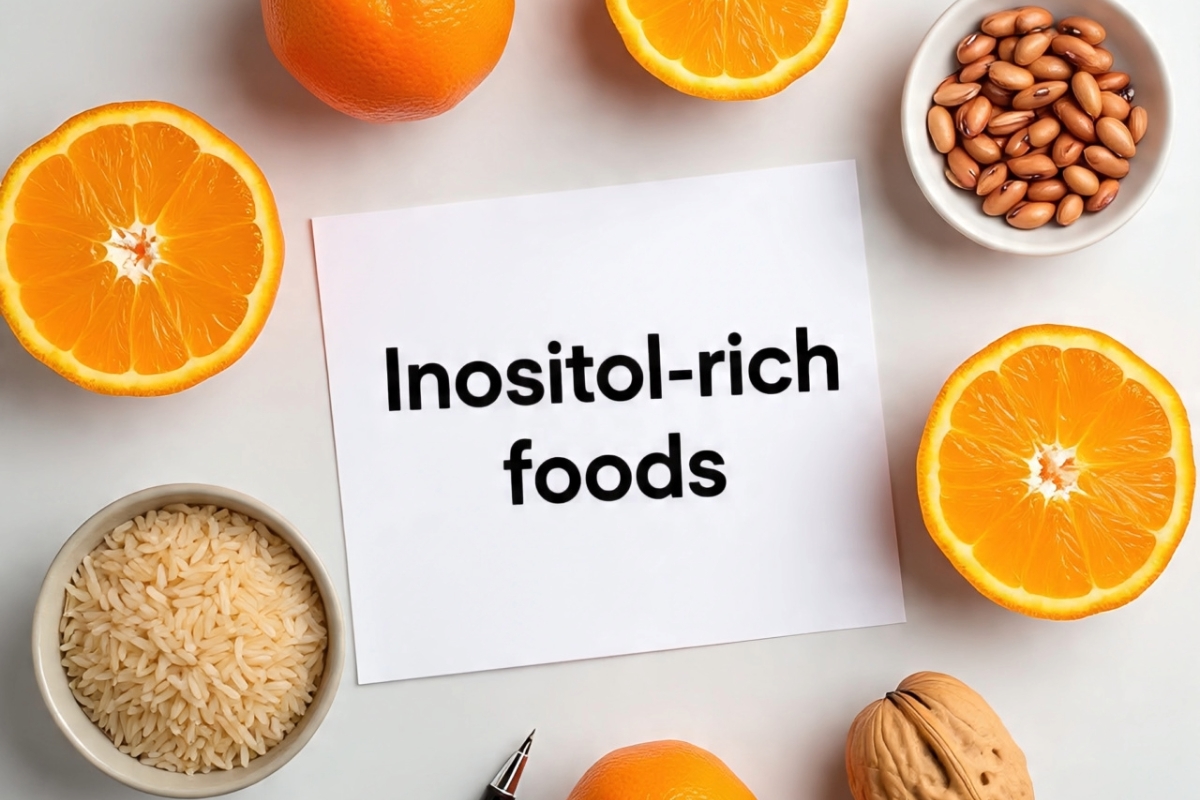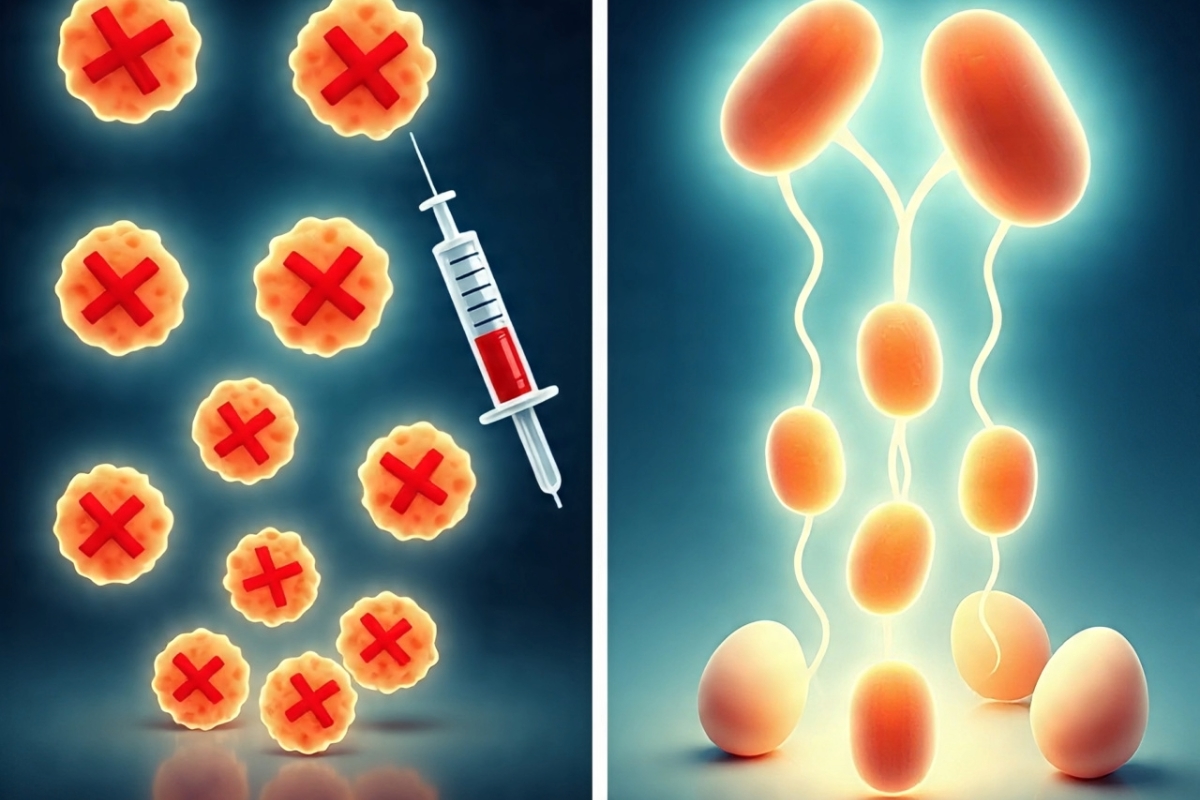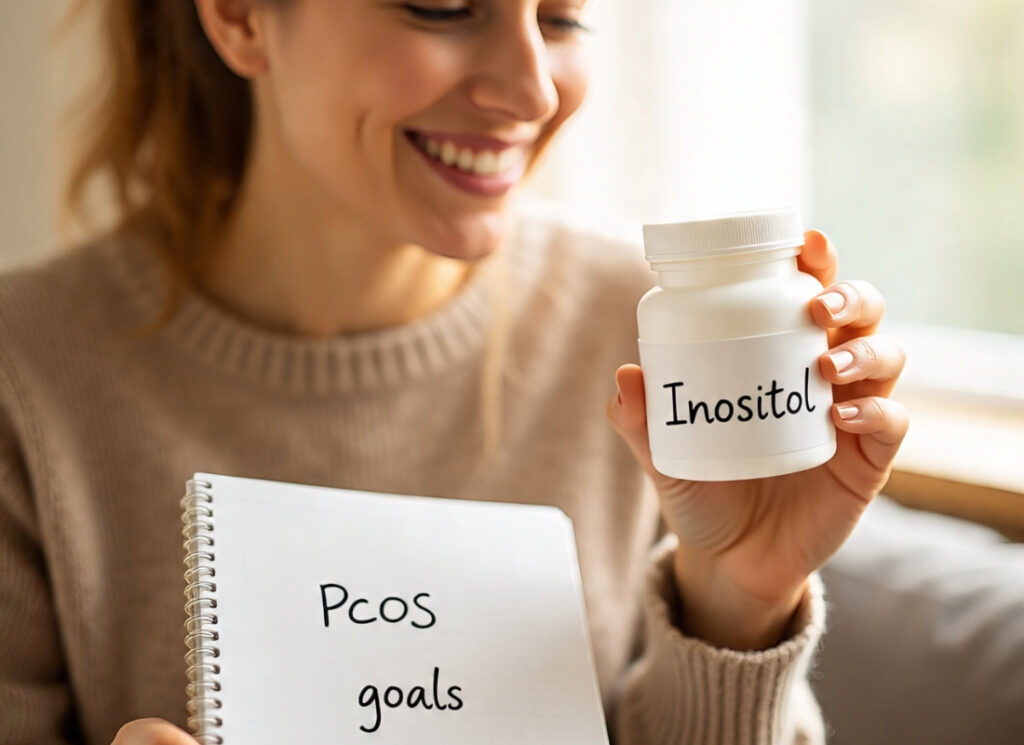Polycystic Ovary Syndrome, or PCOS, has a way of turning your world upside down. It sneaks in with symptoms like missed periods, stubborn acne, and that frustrating weight gain that won’t budge no matter how clean you eat or how hard you work out. For many women, it also means battling hormonal chaos and heartbreaking struggles with fertility. In the midst of all this, one quiet little nutrient has been making some serious noise: inositol.
It may not sound like a miracle cure—and to be fair, it’s not—but for a lot of people with PCOS, inositol has been a game-changer. Let’s dive into what it actually is, how it works, and why so many women are turning to it as a part of their PCOS management plan.
So, What Exactly Is Inositol?
Although inositol isn’t a true vitamin, it is sometimes grouped with the B-vitamin family and can be thought of as a vitamin-like substance. Nuts, cereals, legumes, and fruits all naturally contain it. Additionally, your body produces it naturally, mostly from glucose. While there are various types of inositol, myo-inositol and D-chiro-inositol are the two most significant when addressing PCOS.

Here’s the key thing: these forms of inositol play a major role in insulin signaling and hormone regulation. And if you know anything about PCOS, you know that insulin resistance and hormonal imbalance are two big elephants in the room.
PCOS and the Hormonal Mess
Let’s step back for a second. PCOS is fundamentally a hormonal condition. It throws off the delicate dance between insulin, androgens (male hormones like testosterone), and the reproductive hormones your ovaries depend on to function normally.

Insulin resistance develops in the bodies of many women with PCOS. That means your cells don’t respond to insulin the way they should, so your pancreas produces more and more of it to compensate. Over time, that high insulin level pushes your ovaries to crank out excess testosterone. And that, unfortunately, messes up ovulation.
No ovulation? No regular cycles. And without regular cycles, getting pregnant becomes a lot harder.
That’s where inositol comes in.
How Inositol Helps with Insulin Sensitivity
Myo-inositol, in particular, acts a bit like a second messenger for insulin. It improves how well your cells “hear” the insulin messages. So instead of your body needing to pump out more and more insulin, things start to level out. Lower insulin levels lead to lower testosterone. Lower testosterone means your body might actually start ovulating again. And that—whether you’re actively trying for a baby or just want your body to run smoothly—can be a pretty big deal.
A handful of studies have shown that women with PCOS who supplement with myo-inositol experience improved insulin sensitivity, more regular menstrual cycles, and even restored ovulation. Some have even gone on to conceive naturally after years of fertility struggles. No guarantees, of course, but it’s promising.
Myo-Inositol vs. D-Chiro-Inositol: What’s the Deal?
These two are like cousins. They both help with insulin and hormonal regulation, but they work a bit differently.
• Myo-inositol is more involved in the cellular uptake of glucose and overall insulin signaling.
• D-chiro-inositol plays a stronger role in managing how the body stores glucose and regulates androgen levels.
Your body actually converts myo-inositol into D-chiro-inositol in a specific ratio (roughly 40:1). But in women with PCOS, that conversion process gets a little wonky, which is why a lot of supplements come with a pre-balanced combo of both. The most commonly recommended formula mimics the body’s natural ratio and seems to deliver the best results for hormone balance and fertility.
Fertility Benefits: Can Inositol Help You Conceive?
This is the part that tends to get the most attention—and understandably so. PCOS can be a difficult path for those who want to have children. If ovulation is unpredictable or absent altogether, it’s like trying to hit a moving target in the dark.
Inositol helps bring back some predictability. Several clinical studies have found that myo-inositol supplementation can:
• Restart ovulation
• Improve egg quality
• Shorten the time to conception
• Increase success rates with IVF (when used in conjunction with standard fertility treatments)
For women not ready for fertility treatments or those hoping to try naturally, inositol offers a gentle, non-invasive option with very few side effects. And for many, that’s a breath of fresh air in a world full of prescription meds and hormonal rollercoasters.
Beyond Fertility: Additional Advantages of PCOS

The advantages of inositol for PCOS extend well beyond fertility, even if you’re not actively attempting to conceive:
Better skin: Less testosterone frequently translates into less breakouts.
Decreased hair thinning: androgens can cause hair loss in women with PCOS; reducing those levels can help postpone it.
Weight management: When insulin sensitivity increases, some women say it becomes simpler to lose weight.
Enhanced mood: Studies indicate that inositol may benefit women with PCOS who suffer from anxiety and despair.
Although it’s not a panacea, many women find it to be genuinely beneficial.
Honest Discussion: Is Inositol Safe?
Generally speaking, yes. In general, inositol is regarded as being extremely safe, particularly when used in PCOS doses. Myo-inositol typically ranges from 2,000 to 4,000 mg daily, and it is frequently coupled with 50 to 100 mg of D-chiro-inositol in a 40:1 ratio.
Mild side effects like nausea, lightheadedness, or gastrointestinal distress are seen by some women, usually in the beginning. It is usually a good idea to start small and work your way up.
Consult your doctor before taking any supplements, including natural ones like inositol, if you’re taking metformin or are undergoing reproductive treatments.
Selecting the Appropriate Supplement
Not every inositol product is made equally. Seek out trustworthy brands whose labels specify precise levels of myo- and D-chiro-inositol. Additional substances like vitamin D or folic acid, which can also help with hormone balance and fertility, are included in certain products.
If taking capsules or powders is more convenient for you, stick with that. (Yes, when it comes to this type of supplement, consistency is crucial.)
A Light Prod, Not a Miracle Treatment
To put it plainly, inositol won’t make everything better right away. It’s not a miracle drug. However, it is one of the best-researched, low-risk methods for naturally treating PCOS that we currently have. Whether it means ovulating again, cleaning up skin, or simply feeling more in tune with their body, it gives many women the small push they need to get back on track.
Concluding Remarks: Hope in a Bottle?
Managing PCOS can be like trying to navigate a maze while wearing a blindfold. There is overlap in the symptoms. There are therapies everywhere. The psychological cost? Actual. However, something as basic and organic as inositol? It’s difficult to overlook that ray of hope.
It’s shockingly gentle, patient-tested, and supported by science, so it’s not hype. Inositol may be worth a deeper look if you’re attempting to balance your hormones, control your cycle, or advance in your reproductive path.
Your body, your adventure, as usual. What about inositol? Another tool in your PCOS toolbox.
FAQs:
Inositol is a vitamin-like compound found in many foods. It plays a key role in insulin signaling, and that’s especially important in managing PCOS symptoms.
Because insulin resistance is common in PCOS, inositol can help improve the body’s response to insulin. Therefore, it may reduce symptoms like irregular periods and acne.
Yes. The two main types are myo-inositol and D-chiro-inositol. Although both are helpful, myo-inositol is often used more frequently and studied in fertility cases.
In fact, several studies suggest it can. It may help restore ovulation naturally, which increases the chances of conception without relying solely on medications.
Improvements may be seen within a few weeks, especially in insulin levels and menstrual regularity. However, consistent use over 3–6 months yields better results.


